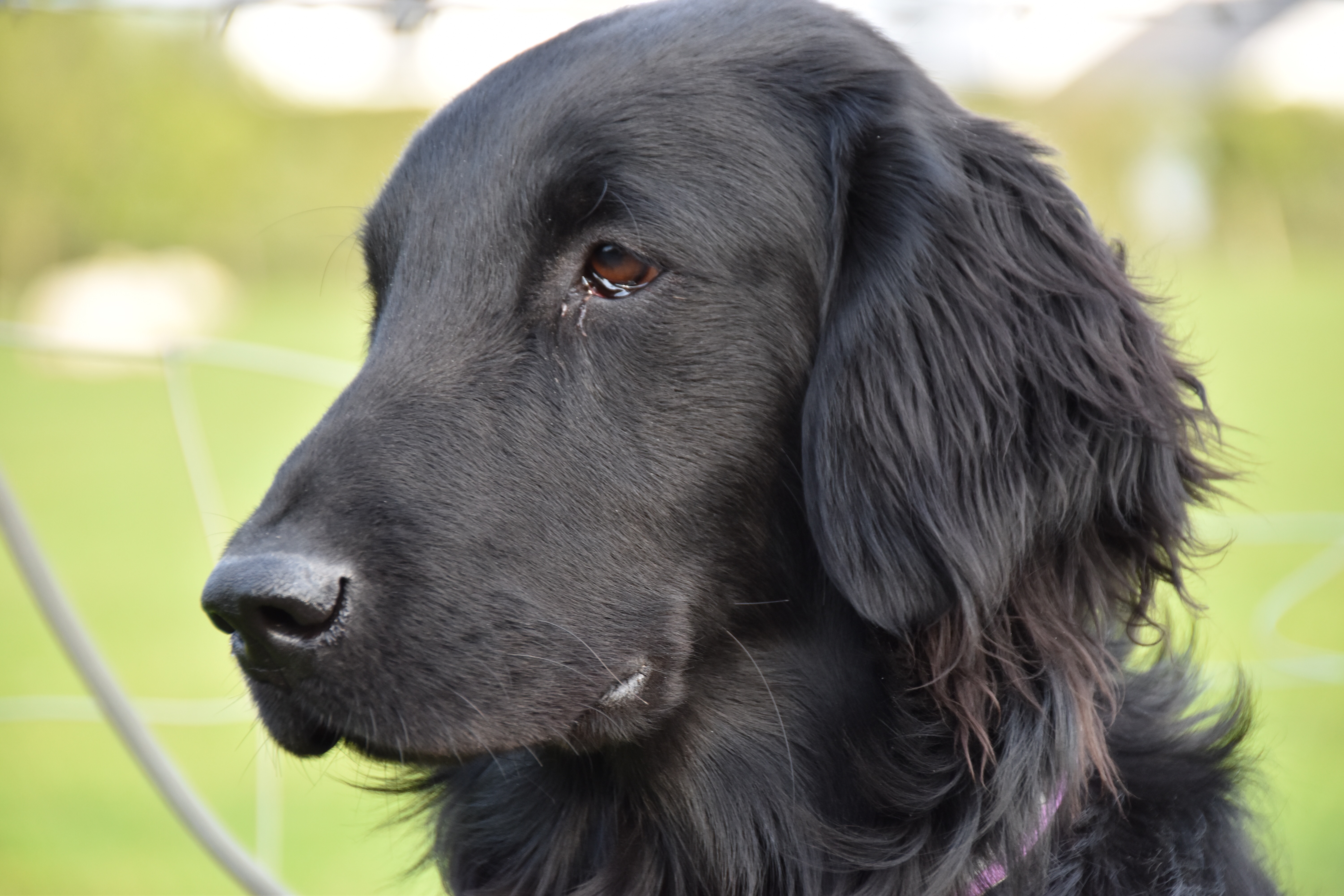
The Bichon Frise – Profile – Health Issues – Bichon Information you can use
The Lively Bichon Frise
A Bichon waves “Bye Bye”
The Bichon dates back to the 1300’s and probably originated in France. The name means “Bichon with the curly coat.” The Bichon is one of the Non-sporting group and was used mostly for amusement and status in ancient times. The dog joined the American Kennel Club in 1972
Breed Overview
The Bichon is full of fun and excitement, friendly and cuddly.
His curly fur coat means little to no shedding. This is a frisky dog but not overly exuberant so it can fit in with almost any environment. The dog comes in white only, enjoys parking and has a hearty appetite to keep it going for a day of fun.
There have been a number of these dogs available through the Bichon Frise rescue groups, both online and in newspapers.
A note about WHITE dogs: They are prone to a rare disorder known as “White Shaker Disease” which causes the dog to do just as the name implies – they shake and the shaking can become pretty severe with tremors in their sleep. See below under Bichon Health Issues for more information.
“How To Train Your Bichon Frise” is a small 96 page hardcover book that discusses getting a Bichon, how to care for it and teach it a few things too. It is rated 5-stars by customers who own the book. Click on the book cover or the link below and scroll down the Amazon page a bit for more information. It’s a worthwhile book.
The Bichon Frise is intelligent and relatively easy to train using the clicker training method with positive reinforcement. He will understand basic commands easily and can learn tricks like “roll over” and “dance.”
Crate Training
Want to crate train your Bichon Frise? It’s easy and if you’re interested, take a look and you’ll see what to do. Crate training your puppy will save many headaches and problems.
Potty Training
The Bichon Frise puppies are fairly easy to house train, potty train, toilet train, housebreak or whatever you want to call it. If you have a puppy, decide if you want to crate or paper potty train it. For the best results, we have a page at Crate vs Paper Potty Training which will help you decide and from there you can get all the information you need to get the job done. Always praise the pup profusely when she goes potty in the RIGHT PLACE so she knows she has done a good thing. Either method will work for this breed
If you have an older dog, take the dog outside every two hours until she gets the idea which door leads to her potty area. Older dogs catch on to the potty or housebreaking pretty fast once they are shown what to do.
“A Bud Light
for me, please.”
Terrific family dog. The Bichon Frise is lively, curious, friendly and gentle with lots of energy and frisky. Loves to be with people. The Bichon is highly social and needs to be around people and even other dogs. This is not a good dog to leave alone all day. They can have “separation anxiety.” They need to be part of everything going on.
Small dogs like the Bichon have a natural problem in that they often want to dominate the house and everyone in it. Small dogs must be heavily socialized starting very young and continued on. They need an owner and family that understands dogs and how to exert a firm but kind “pack leader” (alpha dog) dominance role over them. It is very important not to let the dog think he’s “boss!”
If you happen to get a Bichon Frise with a separation anxiety problem, that can be dealt with by investing a few hours of work on your part and some “tough love.”
Friendly Toward Other Dogs
Yes. Bichons are not aggressive usually and get along with most dogs.
Friendly Toward Other Pets
Yes, usually. Can vary from dog to dog. Best to arrange a trial meeting if the kennel will allow that.
Friendly Toward Strangers
Yes. Bichons are usually friendly with just about everyone and everything.
Playfulness
Extremely. They have a great attitude and make fine, fun-loving house pets.
Yes. Bichons are very affectionate lap dogs!
Yes, kids over 6 or 7 are best as this is a small dog and easily injured. Even so, the kids should be closely supervised until they learn good dog-manners.
Good with seniors over 65?
Yes. A Bichon is a perfect match for a senior. The exercises needs are not too great and as long as the senior can walk a little, this will work out. A senior is usually home a lot so no problem with separation anxiety. Good match. Check for Bichon Frise rescue groups, as these seldom show up in kennels.
A Maltese/Bichon Frise Mix
Living environment
This breed could live anywhere, from a farm to an apartment.
Energy level
Moderate but lively.
A short walk twice a day and some ball chasing in the living room will suffice. HOWEVER — if you want to go jogging with your Bichon, do it! My barber jogs every morning and the Bichon goes jogging and keeps up with her!
Good. Bichons will bark when someone comes to the door, but they won’t kill them. They will alert if someone approaches you from behind in a parking lot.
Almost not at all.
The Bichon Frise must be groomed every day. The coat mats easily and when it does, you have a real problem! Brush your Bichon daily and take her to the groomer every 4 to 6 weeks. A good groomer will charge $45 minimum for a Bichon Frise.
The book on the right is by the American National Red Cross and deals with dog emergencies, dog illness and injuries. It’s a valuable reference manual for all dog owners.
NEW hardcover book Just Added:
“Bichon Frise” (Barron’s Dog Bible) is a 160 page hardcover book that will satisfy all Bichon owners or would-be owners. The book has mixed customer reviews, giving it a 4-star rating. Click on the book cover or link below and scroll down the Amazon page for more specifics.
In the event you decide to go looking for Bichon Frise puppies, be SURE to find reputable breeders that really know what they are doing. Be sure the puppy has been well socialized and started in obedience training.
Bichon Frise Breeders with puppies for sale.
Bichon Frise Rescue
In the event you are seriously considering the adoption of a Bichon and are looking for a Bichon Frise Rescue group or groups in your state, here is a link that might help:
Petfinder – Bichon Frise Rescue – (Nationwide) Before you adopt, read the dog breed info above and be sure to find out about the dog health of the one you adopt.
Adopt A Pet See what this site might have to offer and be sure to look into your local SPCA, dog pound and Bichon Frise rescue breed groups or foster homes. Top
This is basically a healthy breed. Don’t let the list below scare you! Your own dog will probably never have ANY of these problems. These are dog health and medical issues this breed is prone to that have been listed by various veterinarians at different times over the past decade or so and some pertain to puppies and very young dogs that a breeder would deal with.
The information contained herein has been gathered from numerous books by veterinarians and is intended as general information only. Every dog and situation is different. You must see your vet. Our information is for general interest only and not intended to replace the advice provided by your own veterinarian.
-
Hind leg lame, leg pain, holding rear leg up. Patellar luxation— An unusually shallow spot on the femur of the Bichon Frise and weak ligaments or misalignment of tendons and muscles that align the knee joint, allow the knee cap (patella) to float in and out of position. This can be caused by injury or be present at birth and can affect either rear leg at the knee joints. If your dog has trouble straightening the leg, is limping, has lameness or leg pain, or is walking on three legs and holding one hind leg up, look for patellar luxation. Several of my dogs have had the problem and all I’ve done is reach down, massage the knee a little until they drop their leg, and we’re good to go for another 3 or 4 months. Severe cases require surgery for a fully lame leg.

